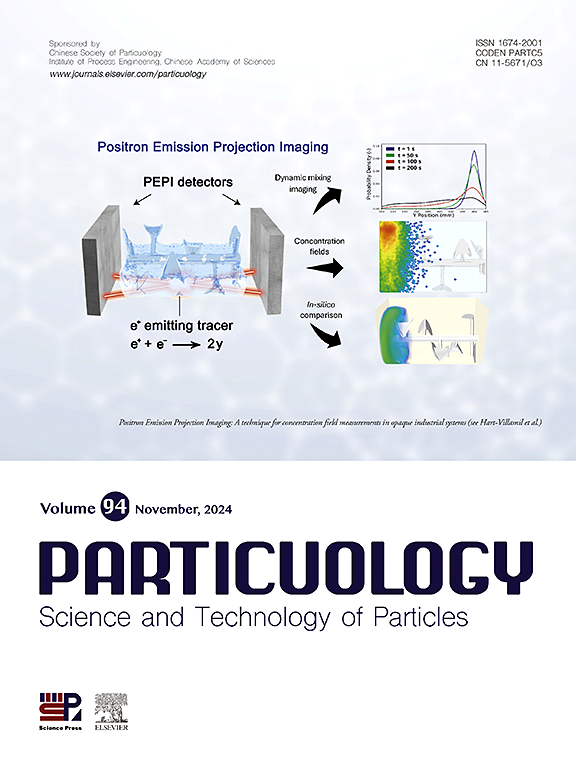Exploring the role of cationic lipids in modulating immunogenicity and vaccine efficacy of mRNA-LNP
IF 4.1
2区 材料科学
Q2 ENGINEERING, CHEMICAL
引用次数: 0
Abstract
The mRNA vaccines have become a transformative platform in medicine, with their success during the COVID-19 pandemic accelerating research in viral prevention and cancer therapy. Lipid nanoparticles (LNPs) enhance the stability and efficacy of mRNA vaccines, but achieving an optimal balance between innate immune activation and mRNA expression is crucial for their effectiveness. Classical cationic lipids, although largely replaced by ionizable lipids due to concerns over excessive immunogenicity, have demonstrated potential in cancer immunotherapy by inducing strong immune responses. In this study, we investigated whether incorporating cationic lipids into mRNA-LNP formulations could enhance immunogenicity without requiring new lipid designs. We introduced varying proportions of cationic lipids into D-Lin-MC3-DMA and SM-102-based LNPs and evaluated their impact on innate immune activation, along with long-term humoral and cellular immune responses. Our results showed that in MC3-based LNPs, cationic lipids significantly improved anti-tumor efficacy, though slightly diminished long-term humoral and cellular immunity. In contrast, in SM-102-based LNPs, cationic lipids enhanced anti-tumor effects without negatively impacting long-term immunity. These findings suggest that adding cationic lipid as an additional component allows for the fine-tuning of mRNA-LNP immunogenicity, expanding the potential applications of mRNA vaccines and simplifying LNP design.

探讨阳离子脂质在mRNA-LNP免疫原性和疫苗效力调节中的作用
mRNA疫苗已成为医学的变革性平台,它们在COVID-19大流行期间的成功加速了病毒预防和癌症治疗的研究。脂质纳米颗粒(LNPs)增强了mRNA疫苗的稳定性和有效性,但在先天免疫激活和mRNA表达之间实现最佳平衡对其有效性至关重要。由于担心过度的免疫原性,传统的阳离子脂质在很大程度上被电离性脂质所取代,但通过诱导强烈的免疫反应,在癌症免疫治疗中显示出潜力。在这项研究中,我们研究了在mRNA-LNP配方中加入阳离子脂质是否可以在不需要新的脂质设计的情况下增强免疫原性。我们将不同比例的阳离子脂质引入到基于D-Lin-MC3-DMA和sm -102的LNPs中,并评估它们对先天免疫激活以及长期体液和细胞免疫反应的影响。我们的研究结果显示,在基于mc3的LNPs中,阳离子脂质显著提高了抗肿瘤疗效,但略微降低了长期的体液和细胞免疫。相反,在sm -102为基础的LNPs中,阳离子脂质增强了抗肿瘤作用,但不会对长期免疫产生负面影响。这些发现表明,添加阳离子脂质作为额外成分可以微调mRNA-LNP的免疫原性,扩大mRNA疫苗的潜在应用范围,简化LNP设计。
本文章由计算机程序翻译,如有差异,请以英文原文为准。
求助全文
约1分钟内获得全文
求助全文
来源期刊

Particuology
工程技术-材料科学:综合
CiteScore
6.70
自引率
2.90%
发文量
1730
审稿时长
32 days
期刊介绍:
The word ‘particuology’ was coined to parallel the discipline for the science and technology of particles.
Particuology is an interdisciplinary journal that publishes frontier research articles and critical reviews on the discovery, formulation and engineering of particulate materials, processes and systems. It especially welcomes contributions utilising advanced theoretical, modelling and measurement methods to enable the discovery and creation of new particulate materials, and the manufacturing of functional particulate-based products, such as sensors.
Papers are handled by Thematic Editors who oversee contributions from specific subject fields. These fields are classified into: Particle Synthesis and Modification; Particle Characterization and Measurement; Granular Systems and Bulk Solids Technology; Fluidization and Particle-Fluid Systems; Aerosols; and Applications of Particle Technology.
Key topics concerning the creation and processing of particulates include:
-Modelling and simulation of particle formation, collective behaviour of particles and systems for particle production over a broad spectrum of length scales
-Mining of experimental data for particle synthesis and surface properties to facilitate the creation of new materials and processes
-Particle design and preparation including controlled response and sensing functionalities in formation, delivery systems and biological systems, etc.
-Experimental and computational methods for visualization and analysis of particulate system.
These topics are broadly relevant to the production of materials, pharmaceuticals and food, and to the conversion of energy resources to fuels and protection of the environment.
 求助内容:
求助内容: 应助结果提醒方式:
应助结果提醒方式:


